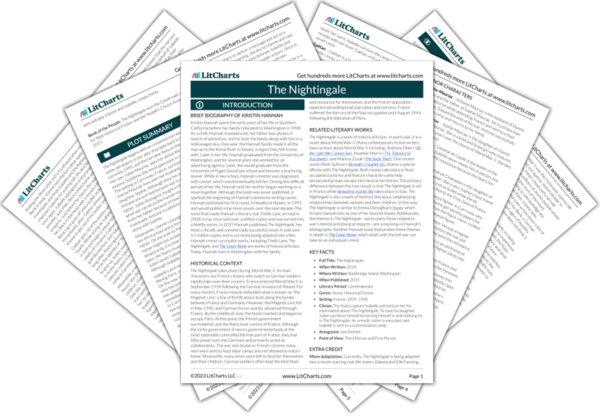This section marks a fundamental character shift for Beck. Previously, he seemed like a fundamentally good person on the wrong side of the war. However, here, he demonstrates his capacity to act callously and manipulatively toward Vianne, even if he’s just following orders. It is important to note that at this time, Vianne (and possibly Beck) would not know the purpose of such a list. However, both Beck and Vianne know that, at the very least, the list would be detrimental to the people on it.
